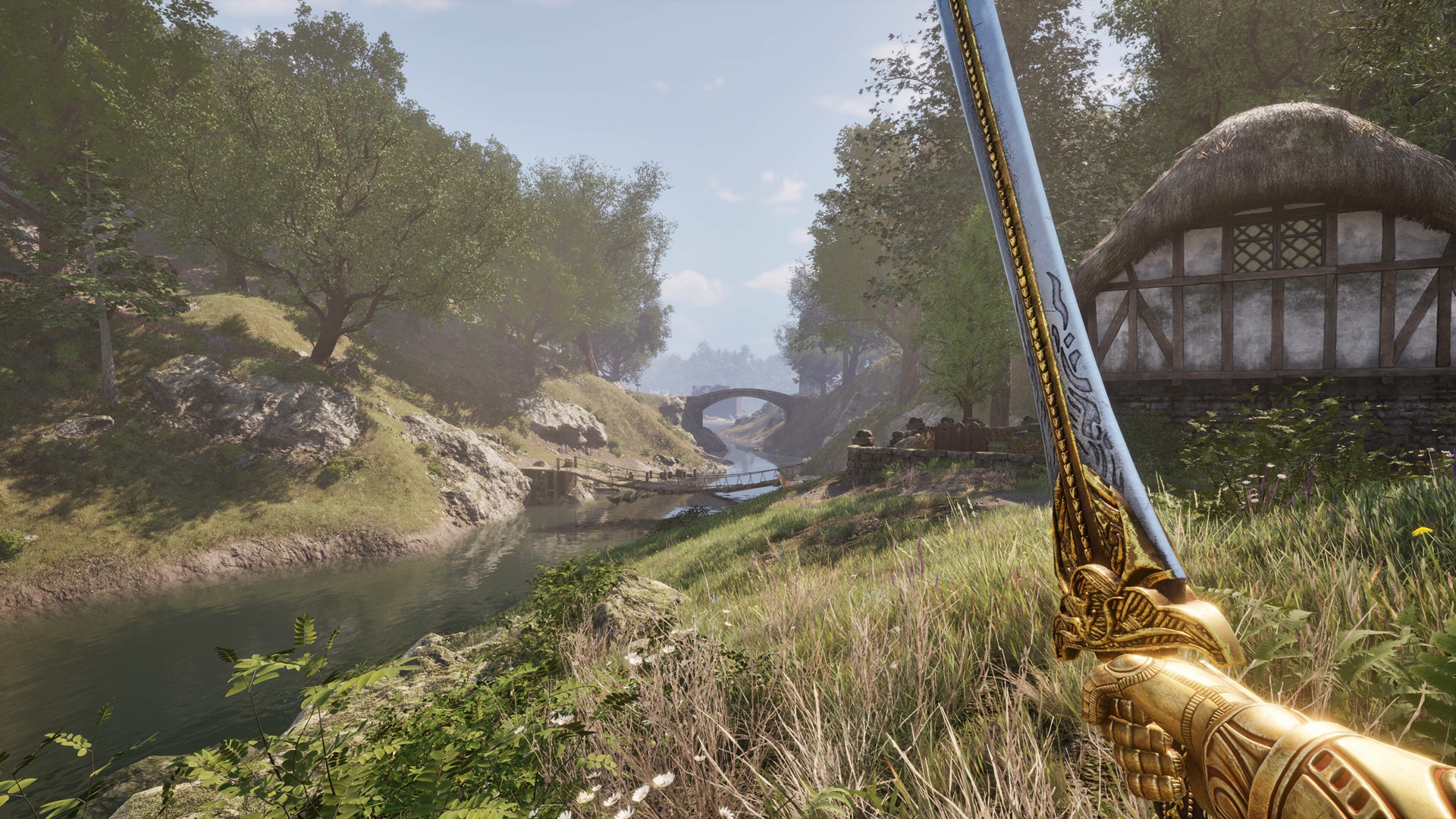Five reasons I'm loving Tom Clancy's The Division, so far!
March 8th rolled on by and dropped a Division-shaped bombshell onto Xbox Ones and gaming PCs everywhere. And so far, it's been a total blast.
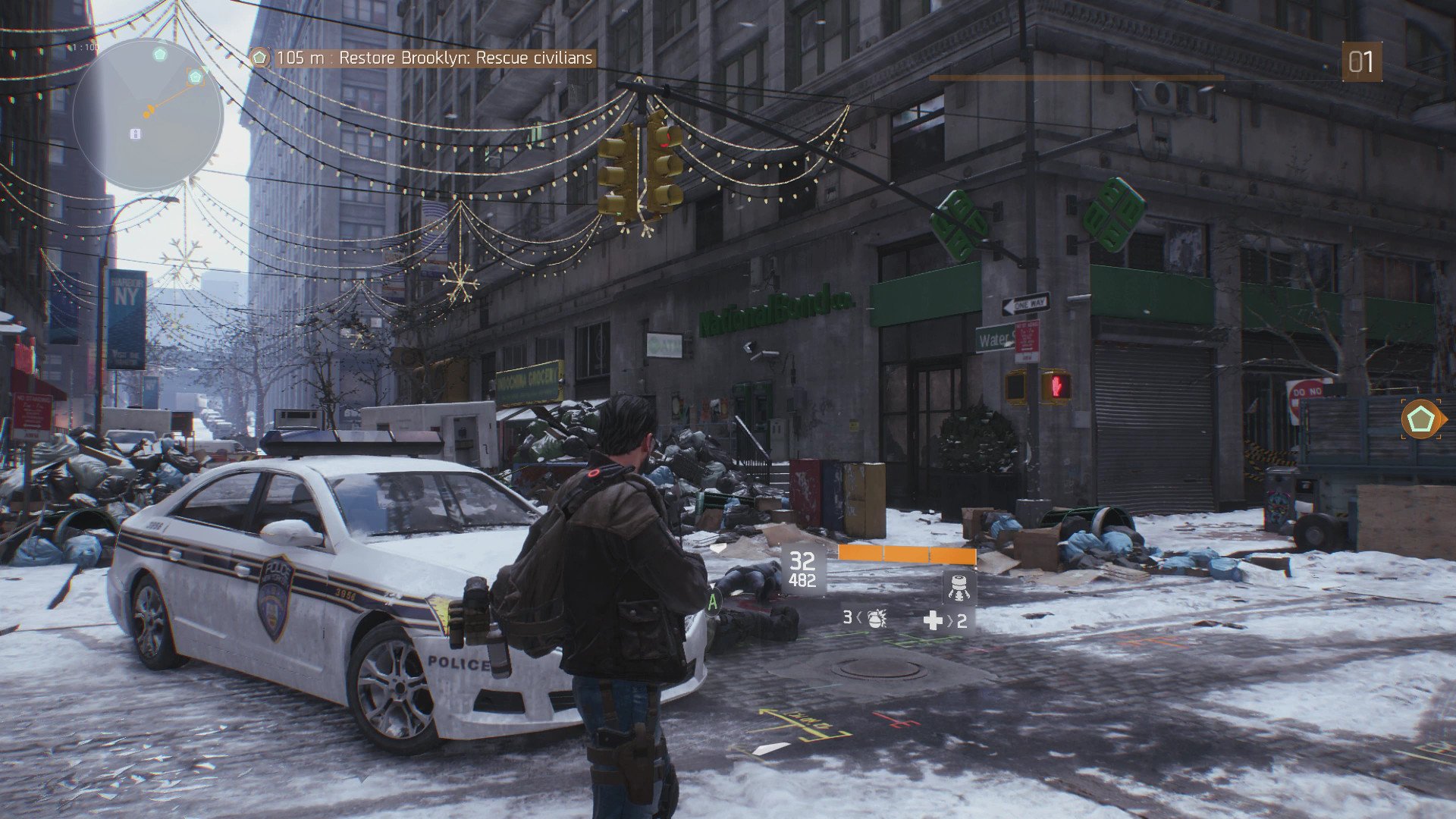
I think The Division's recent beta tests were a pretty good indicator that the game was going to be something special, and millions of gamers seemed to agree — its smashing records for Ubisoft, becoming their fastest selling title to date.
The Division is insanely ambitious, being the product of not one, but several Ubisoft studios, and looks set to topple Destiny from its connected-shooter crown.
For those who don't know, Tom Clancy's The Division is a third-person tactical shooter with heavy RPG elements, set in a post-societal New York City. A smallpox virus on steroids has wiped out much of the populace, and various crazies and criminal elements have moved in to take over the city, looting and pillaging as they go. You play as an agent from the Strategic Homeland Division, or The Division for short, tasked to be the last line of defence against the total collapse of the US.
Throughout the game, you'll undertake missions either solo or in teams of up to four to wipe out fanatical faction leaders, rescue high-profile hostages, unravel the cause of the pandemic and work to restore order to a New York gone mad — all while picking up piles and piles of tasty loot.
I'm still working on a full review for The Division, but here're some of the things I love about The Division so far.
1. The game actually works
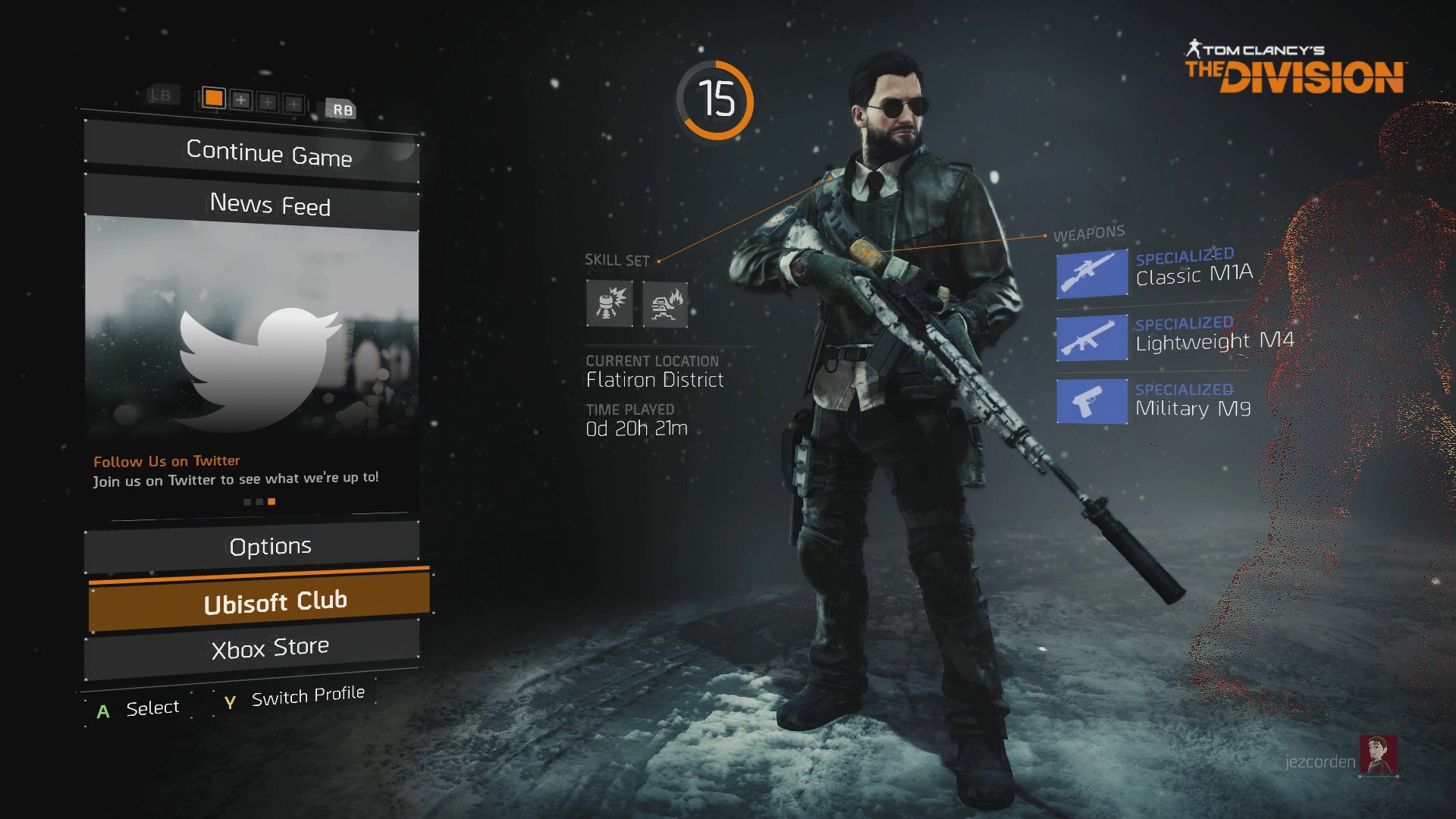
Ubisoft has a patchy track record when it comes to big game launches. Assassin's Creed Unity is notorious for denting the series' image with its menagerie of bugs, and Rainbow Six Siege — a game that is entirely multiplayer-based — was plagued with server issues extending from the game's launch.
The Division had a few early access tests on Xbox One, showing millions of players a small portion of the game's final content. All that testing appears to have paid off because I haven't yet encountered any dropped connections, latency issues or major bugs.
Get the Windows Central Newsletter
All the latest news, reviews, and guides for Windows and Xbox diehards.
The Division takes place in a vast and meticulously detailed open world, which is always-online. While your progress in the story and side missions are unique to your version of the open world, you can jump in and out of your friend's worlds to share progression at will. The game's player vs. player DarkZone persistently connects you to other players and considering The Division's tactical squad-based gameplay, minimalizing latency and connection issues is paramount.
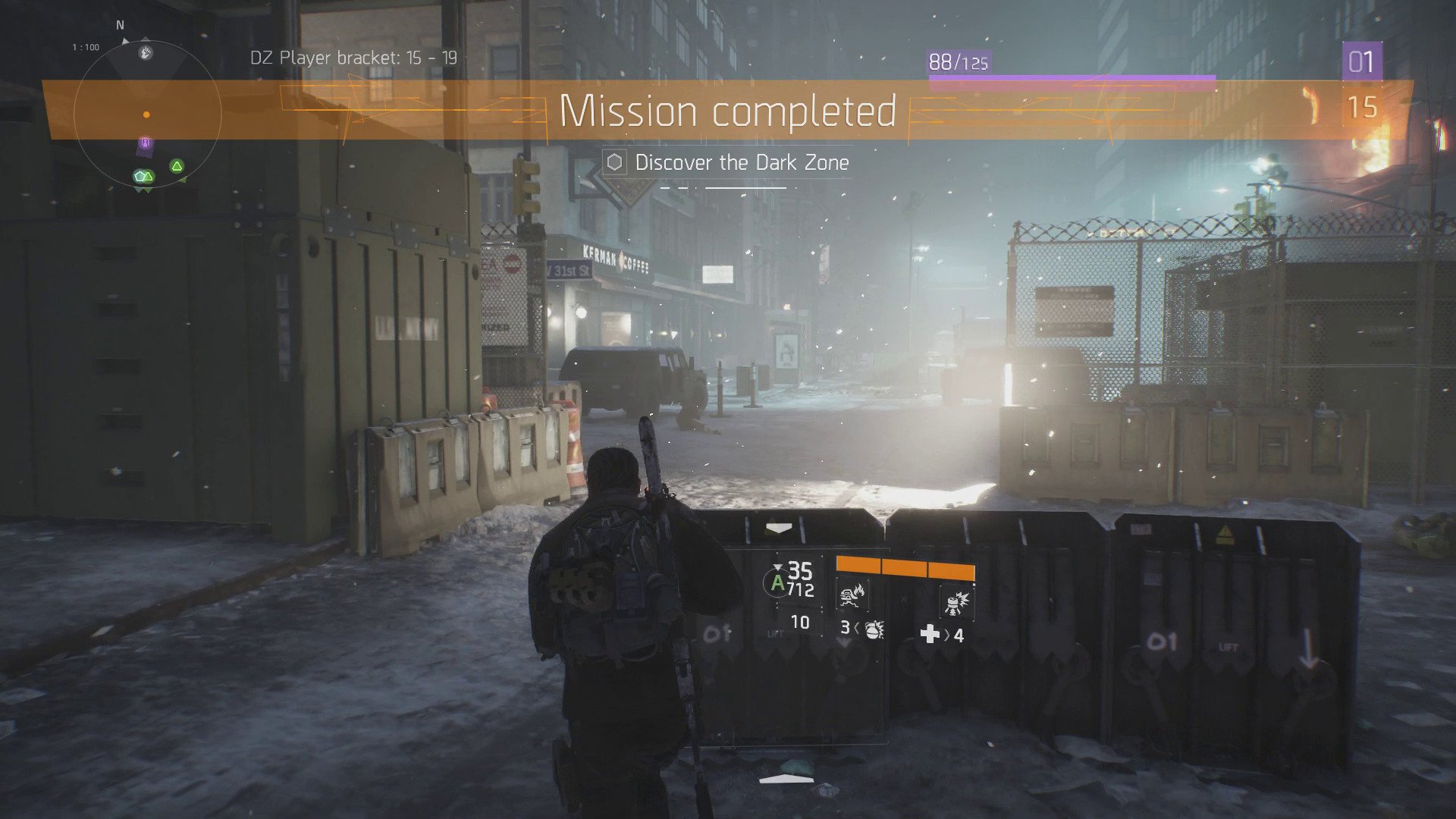
These days it seems to be a 50/50 chance whether an online game will actually work properly on launch day, I'm overjoyed to report that everything has been rock solid so far when it comes to The Division's servers. I won't lie, though; I have encountered some strange glitches with audio, where sound files get backed up into a buffer and then start playing all at once. I have fallen through the world on one occasion and discovered areas of the game that are missing textures — but, so far, there's been nothing one could consider game breaking.
If you're having trouble connecting to other players, you might need to consider reconfiguring your Xbox's NAT settings.
2. RPG systems that matter
Since the advent of World of Warcraft, I feel like multiplayer RPGs have struggled to walk the line between class uniqueness and homogenization. If classes are too unique, it can lead to imbalance and situations where you're neutering your group unless you have an expressly required class role (such as a healer). If classes are too similar, you'll never be in a situation where your group is underpowered for not having a particular class, but then why have classes at all? Homogenization is just plain dull.
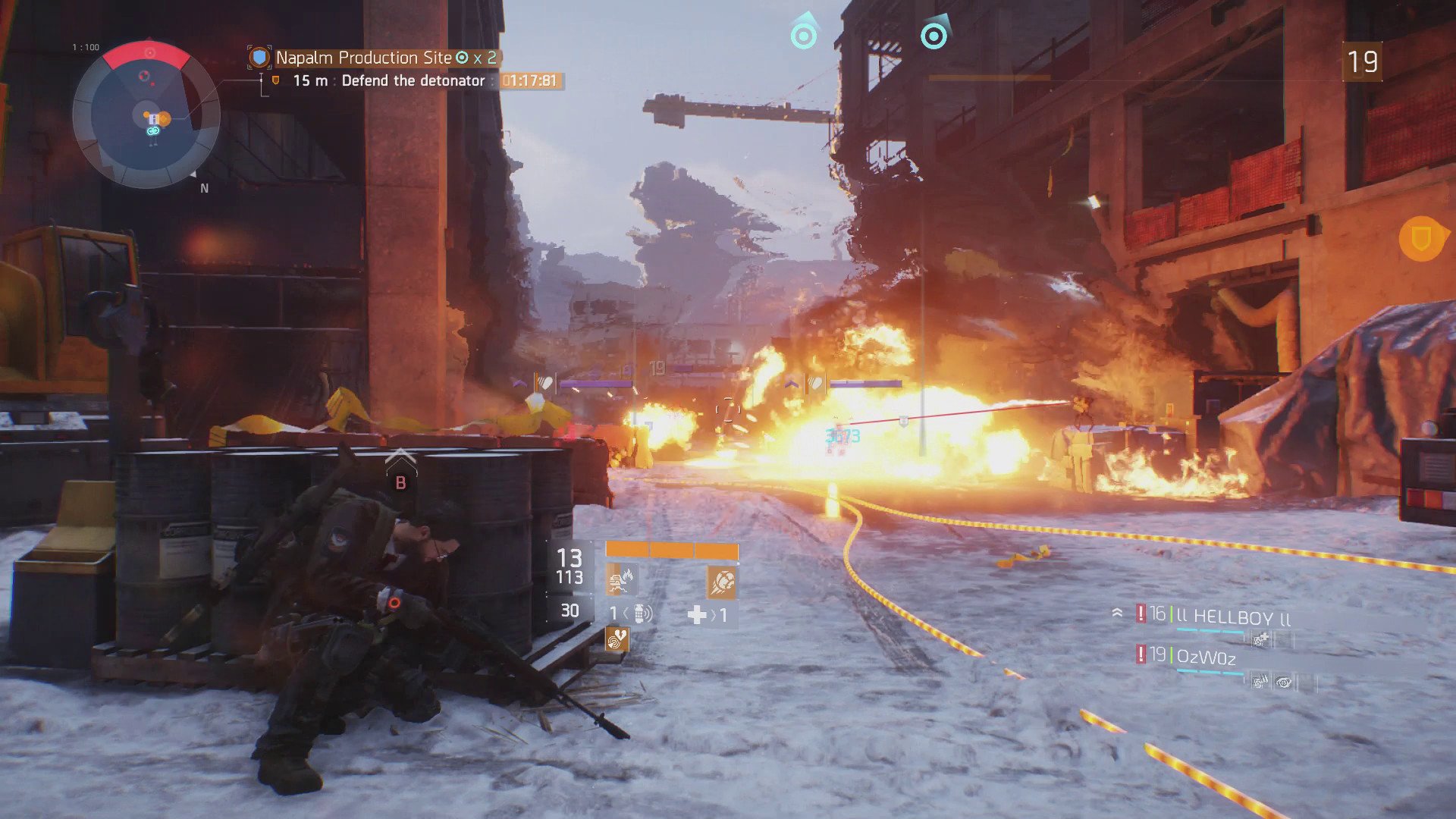
In the similar RPG shooter Destiny, the three classes you could choose from in its base game were almost entirely inconsequential. Each performed very similar abilities on very similar cooldown timers, primary differences being aesthetic in nature. Even on higher level content, Destiny rarely presented reasons to work as a team to overcome its various sci-fi bullet sponges — somewhat missing the point RPG co-operative play. The Division is different.
The Division is a little more like Diablo III in the sense that all players have access to all abilities, but can tailor their class role and playstyle at will. Enjoy the healer role? Go down the Medic talent tree, and hunt gear that increases your healing abilities. Enjoy being a damage dealer? Find a sniper rifle, take all the damage modifying perks, firepower gear and aim for the head. Want to help with crowd control and defense? Go down the security tree, and avoid equipment that reduces your threat level with the enemy.
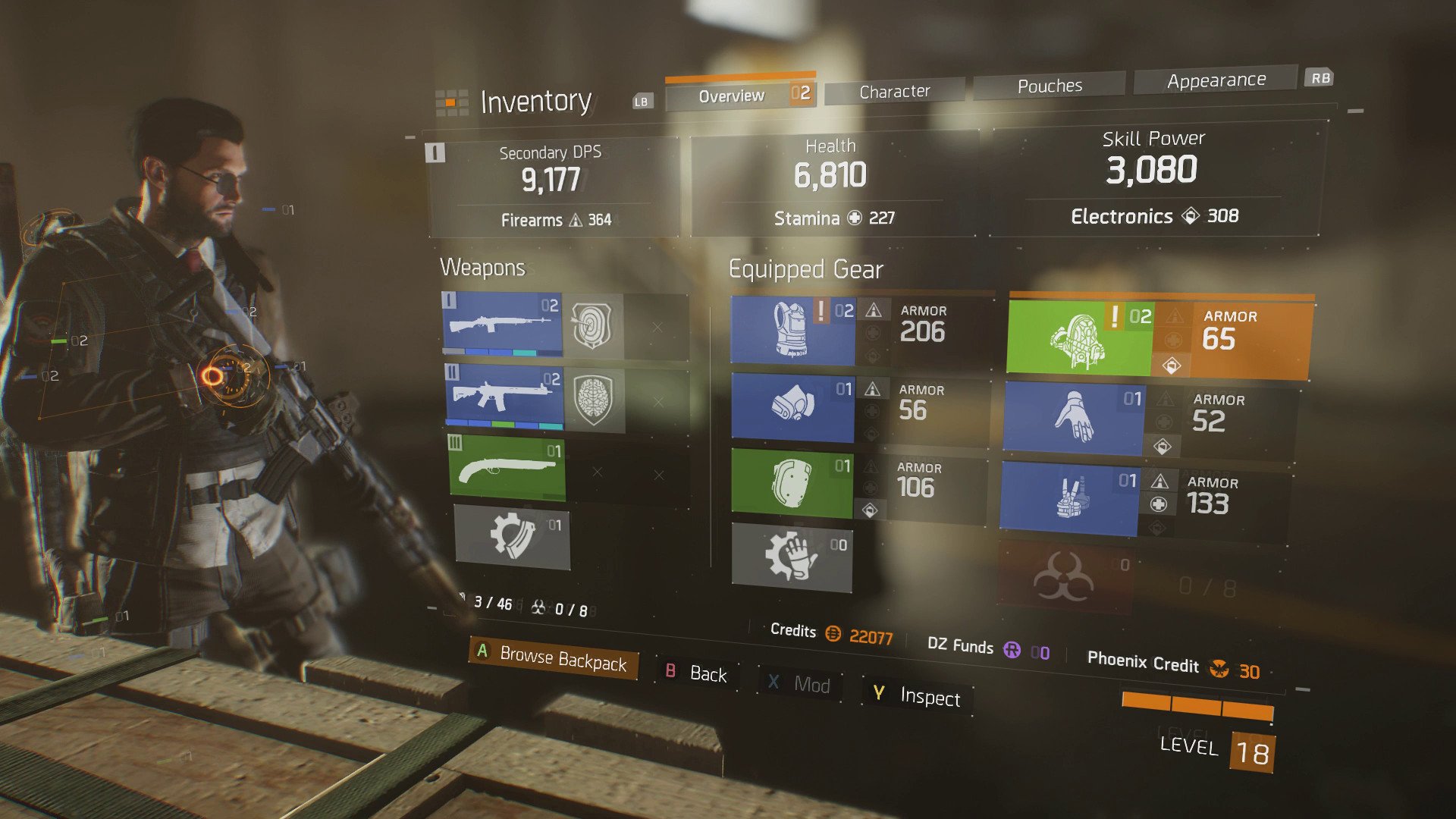
From the game's guns, mods, stats, perks, talents and skills, The Division allows you to tailor your combat role with more depth than other recent RPG shooters I've played, even exceeding the likes of Mass Effect — which is not only bold but just plain awesome. Ubisoft appears to have thoroughly nailed what an RPG shooter should be.
3. Loot addict's paradise
So far, The Division's open world feels like the culmination of everything the publisher has learned about world design over the last decade, cramming it to the brim with worthwhile activities and reasons to explore. For the most part, The Division ditches those notorious Assassin's Creed-style flag collect-a-thons.
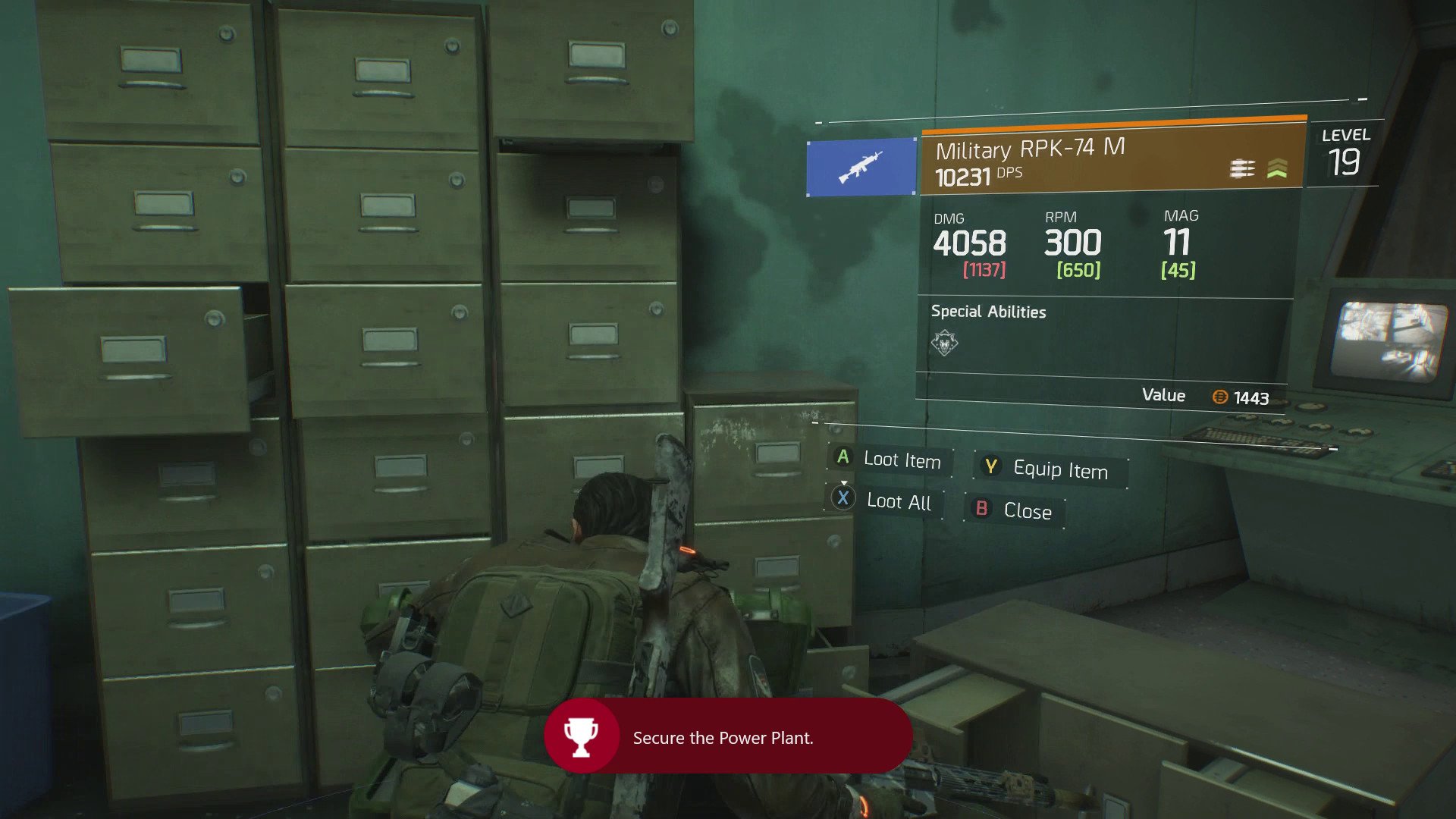
As you wander the chaos of The Division's New York streets, frozen forever in the neon glow of an abandoned Christmas, it rains gameplay opportunities like gifts from a post-apocalyptic Santa sleigh. These can be anything from your basic go here, kill this, click on this side quests, all the way to story-driven dungeons complete with tactical boss fights.
"Just five more minutes... I'll do one more quest..."
Whether you're diving into an unexplored sewer or fighting your way through an abandoned apartment block, each area, each mission and each boss kill comes with guaranteed, sweet and succulent items that dig their little hooks into your skin and make you want more, MORE!
As mentioned, The Division's RPG mechanics allow you to tailor your playstyle in various ways, making the statistic hunt all the more satisfying. Whether you're chasing firepower, medical skill or technical prowess, The Division's spread of stats and modifiers makes loot incredibly rewarding when you know what to look for — particularly when you see the effect it can have on your damage and healing numbers.
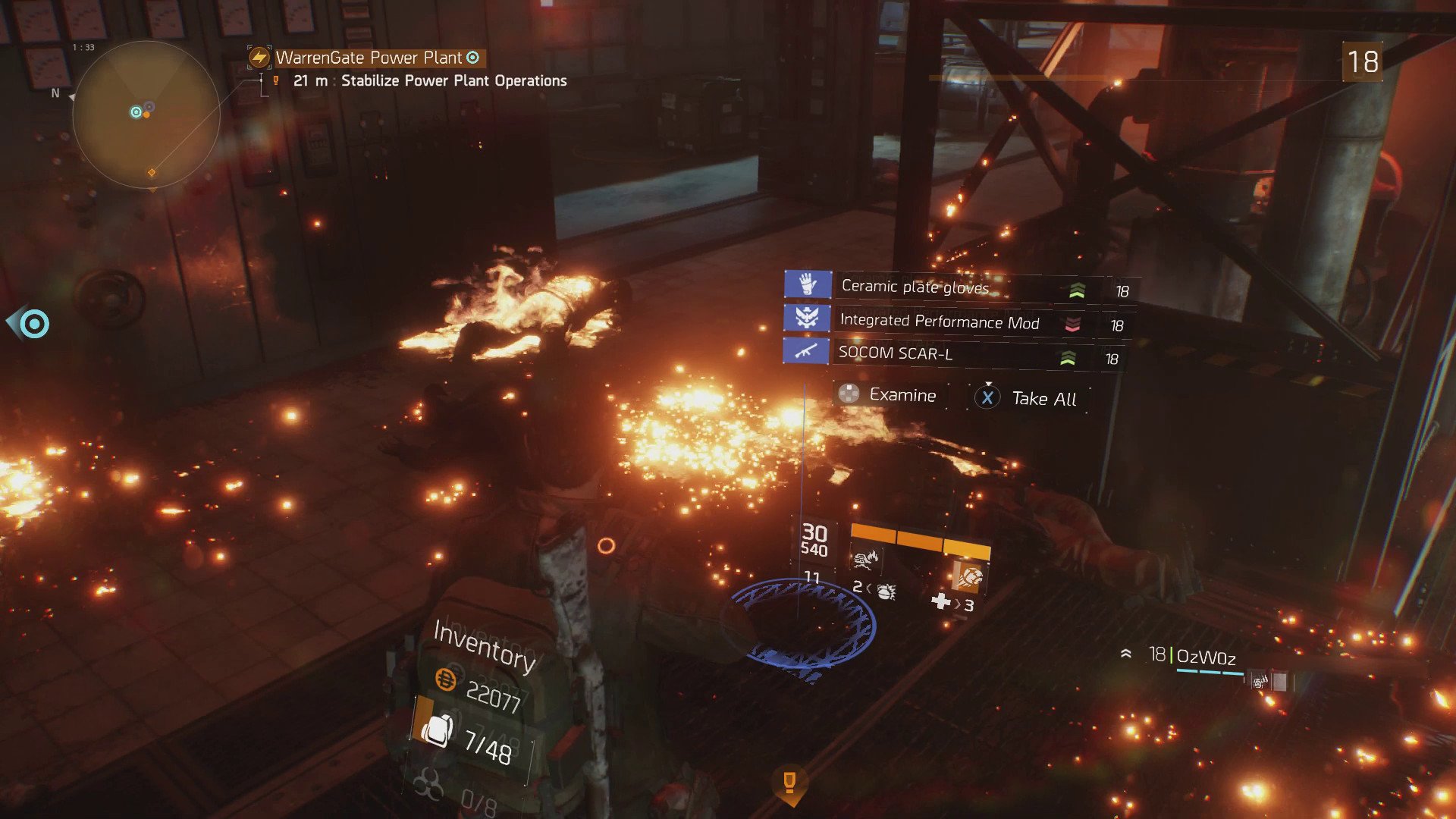
When combined with a Diablo III-style crafting system, if you're prone to loot addiction (like me) you could be kissing goodbye to the sunlight as you game until dawn, forgoing sleep, food, and human contact. "Just five more minutes... I'll do one more quest..."
4. A world worth caring about
The Division takes place in a near-future New York City, complete with world-renowned landmarks and familiar modern day locations. Ubisoft is well known for their expertly crafted open worlds — which while detailed, can occasionally feel a little sterile. As mentioned, Ubisoft appears to have learned from criticisms about its previous games to produce something with a stronger pulse — a fact which should be at odds with its decayed setting.
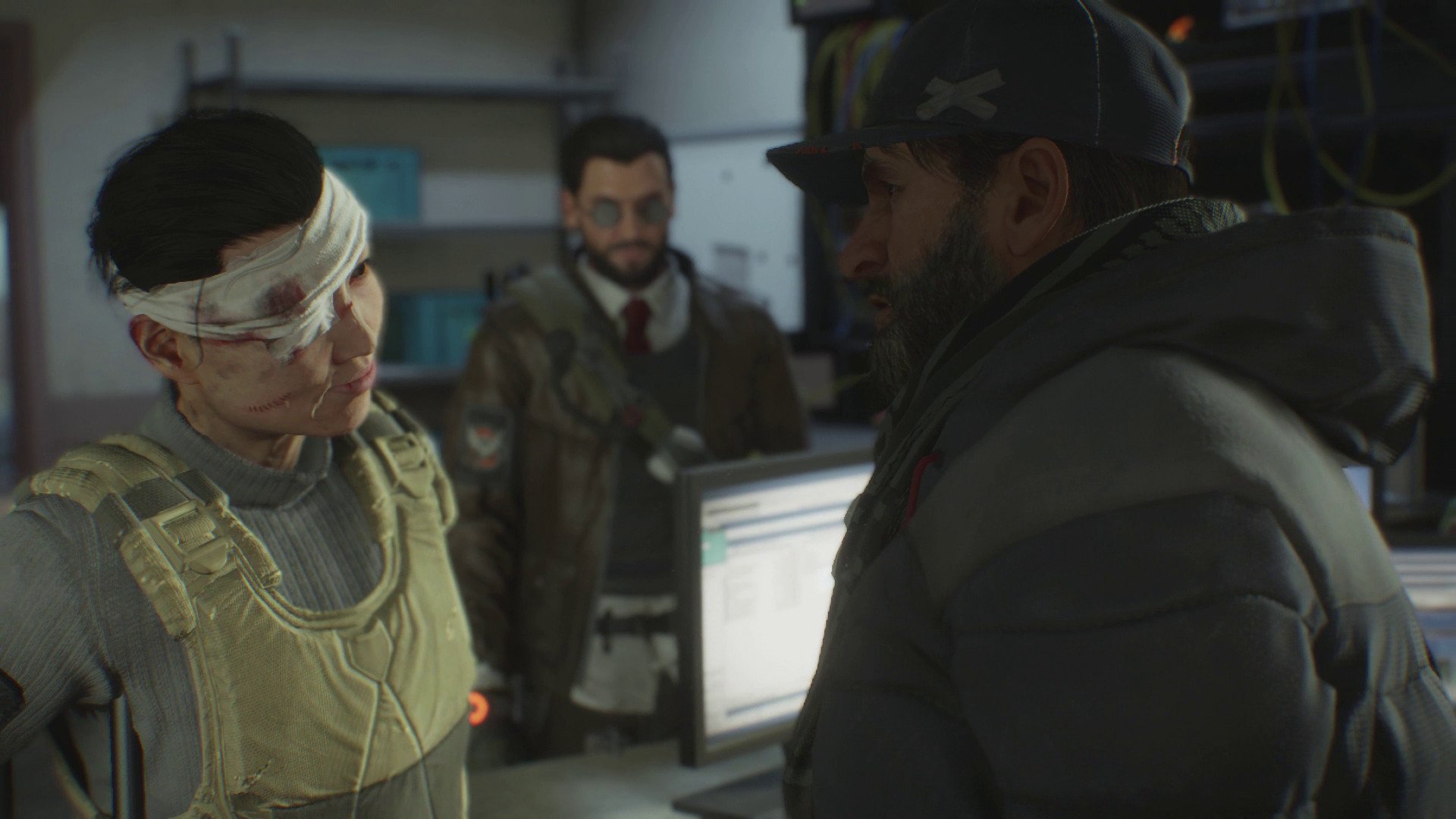
The game is littered with tiny details, finer nuances and life-like NPC interactions that are a joy to discover. For example, check out the below sequence featuring a crow griefing a rat. After several hours of play, I've only seen this occur once.
Gorgeous graphics, day and night cycles and dramatic weather effects give new life to areas you may have previously traversed. The Division might not be able to call upon space-age sci-fi tropes when building its enemies and weapons, but the modern day setting twisted by a very realistic apocalypse is equal parts haunting and surprising in its own right.
Beyond missions themselves, the game provides a wealth of flavor to give context to the game's infectious world — including recovered CCTV footage, smartphone voice messages and even augmented reality reconstructions of previous events. It allows you to experience what drove the city into total anarchy, setting the stage for a cohesive narrative that Ubisoft can build on for many months (maybe years) to come. My experience with the game's main plot is limited, but all signs, so far, are quite promising.
5. The unforgiving Dark Zone
The Dark Zone is probably my favorite aspect of The Division so far. It is brutal, exciting, innovative, and captures the exhilarating essence of classic MMO open world player vs. player almost perfectly. While roaming The Division's environment, you'll only encounter other players in the game's various social hubs or those who have joined your group. Outside of the Dark Zone, the only enemies you'll meet are CPU controlled. While they do have some pretty oppressive A.I. and often deadly abilities, computer-controlled enemies are usually predictable. Human players are far less so.
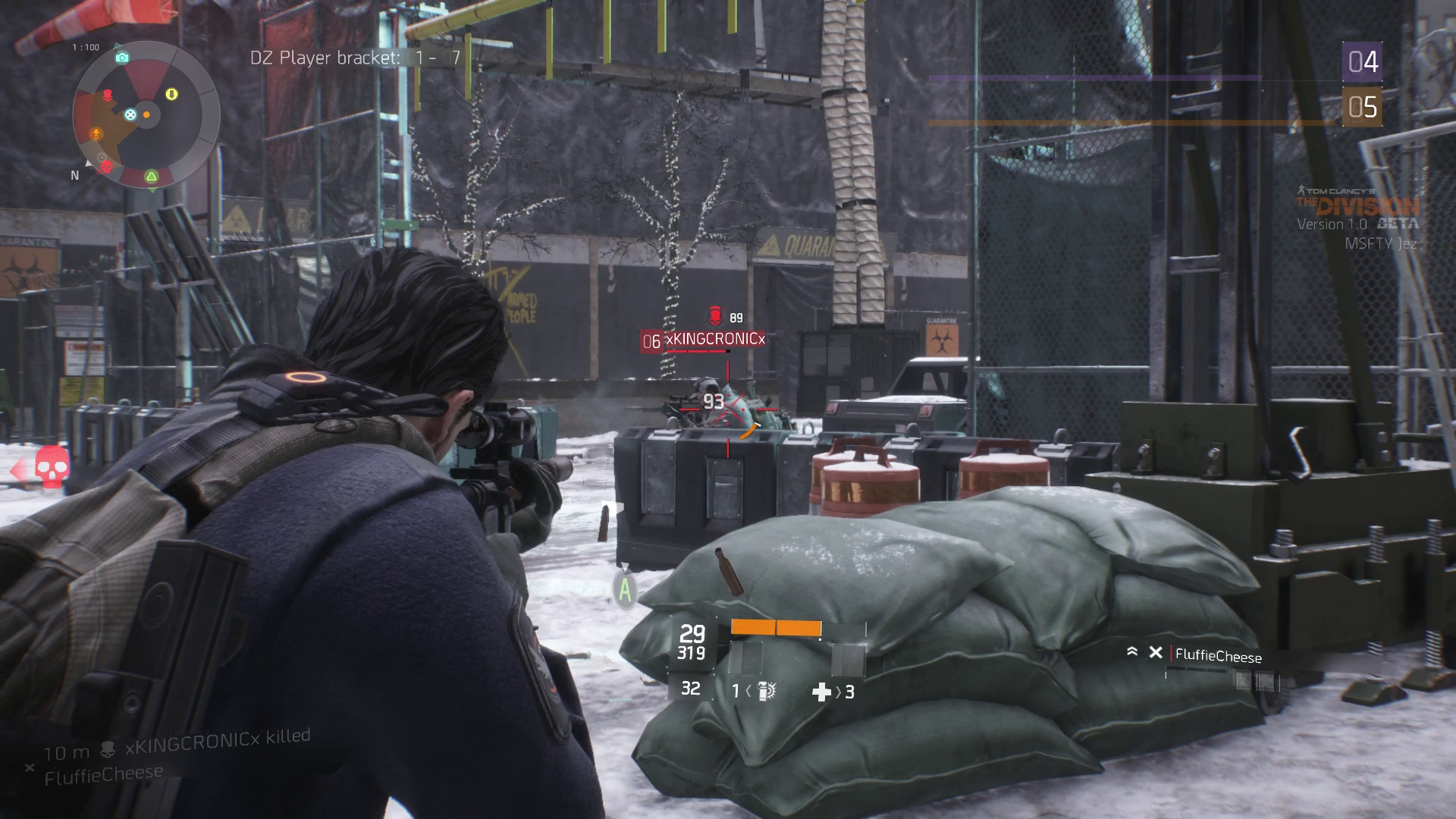
The Dark Zone is a strip of New York City that cuts straight through the middle of the game's map, painted red to reflect the danger therein. When you enter this zone, players who aren't in your group can attack and kill you.
The Dark Zone is not to be confused with team deathmatch or capture the flag — it is still very much a part of the core RPG experience complete with loot and computer-controlled enemies. Ubisoft's servers will dynamically connect you with other roaming players, creating a persistent threat to your personal well-being.
There's no guarantee that you'll be attacked, and there's no guarantee that you won't be — it's that uncertainty that can make the Dark Zone a unique and paranoid place to be inside. If you're brave enough to traverse the most infected areas, the rewards will be incredible. The Dark Zone has some of the most powerful loot in the game and even has a separate levelling system and currency to encourage participation.
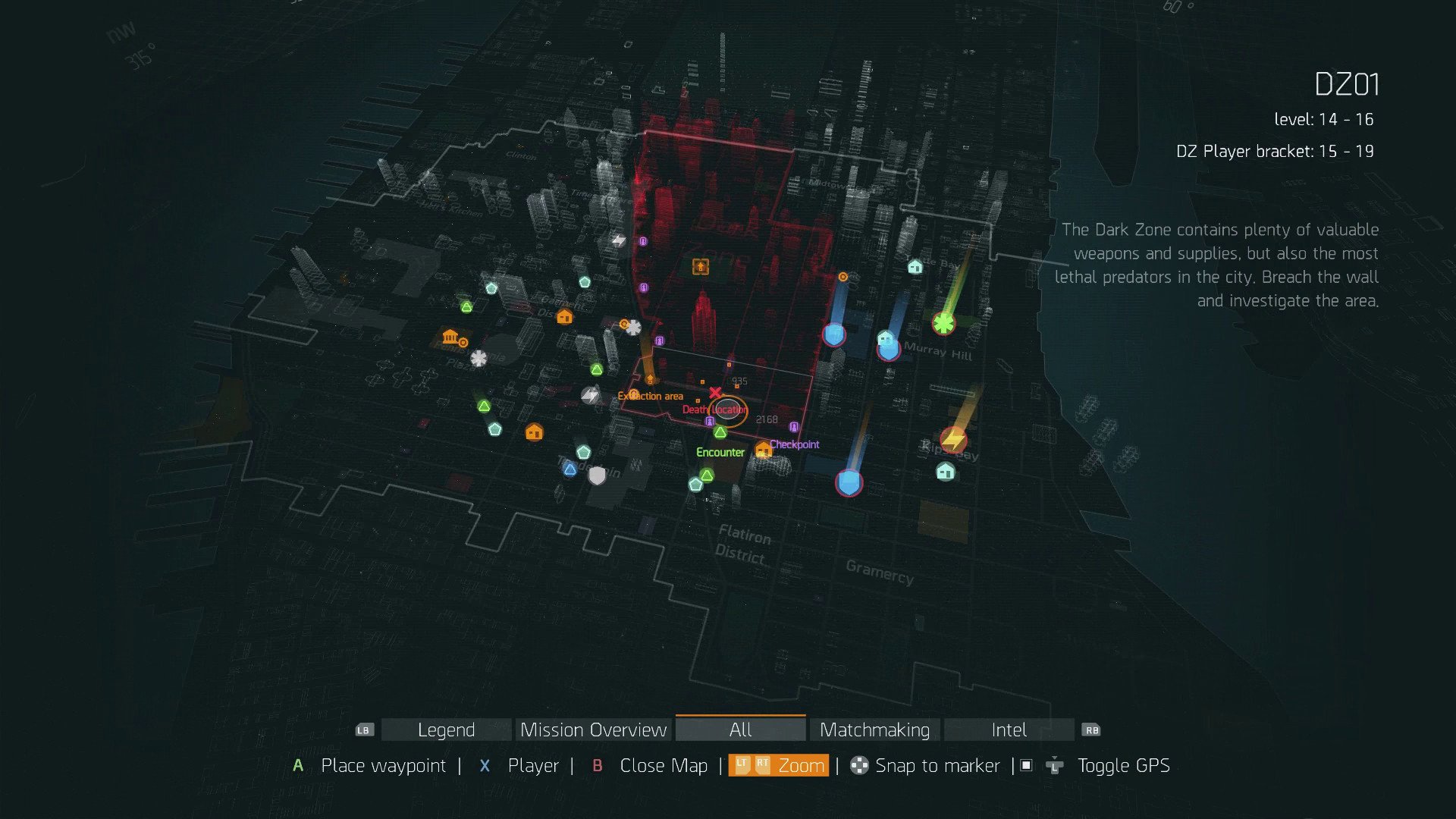
Players who attack their fellow agents get flagged as rogues, and can be killed for Dark Zone EXP and currency without repercussion. It might seem like a better idea to just not become a rogue, but in the Dark Zone, you can steal Dark Zone loot directly from a downed player, which can be incredibly enticing if you happen upon a player with his back turned, distracted by the extraction chopper needed to recover Dark Zone loot.
That greed can be overwhelming, and sometimes that greed can pay off big time. Other times, that greed can get you killed.
The road to review
A game like The Division is quite difficult to review, if for no reason other than its massive scope. When you disregard its story, huge play area, and combat, a major question mark hangs over its end game. I'd argue that a game that introduces behavioral incentives to remain engaged has a responsibility to keep the content fresh with regular content drops and activities that break up the potential monotony of MMO-like loot grinding.
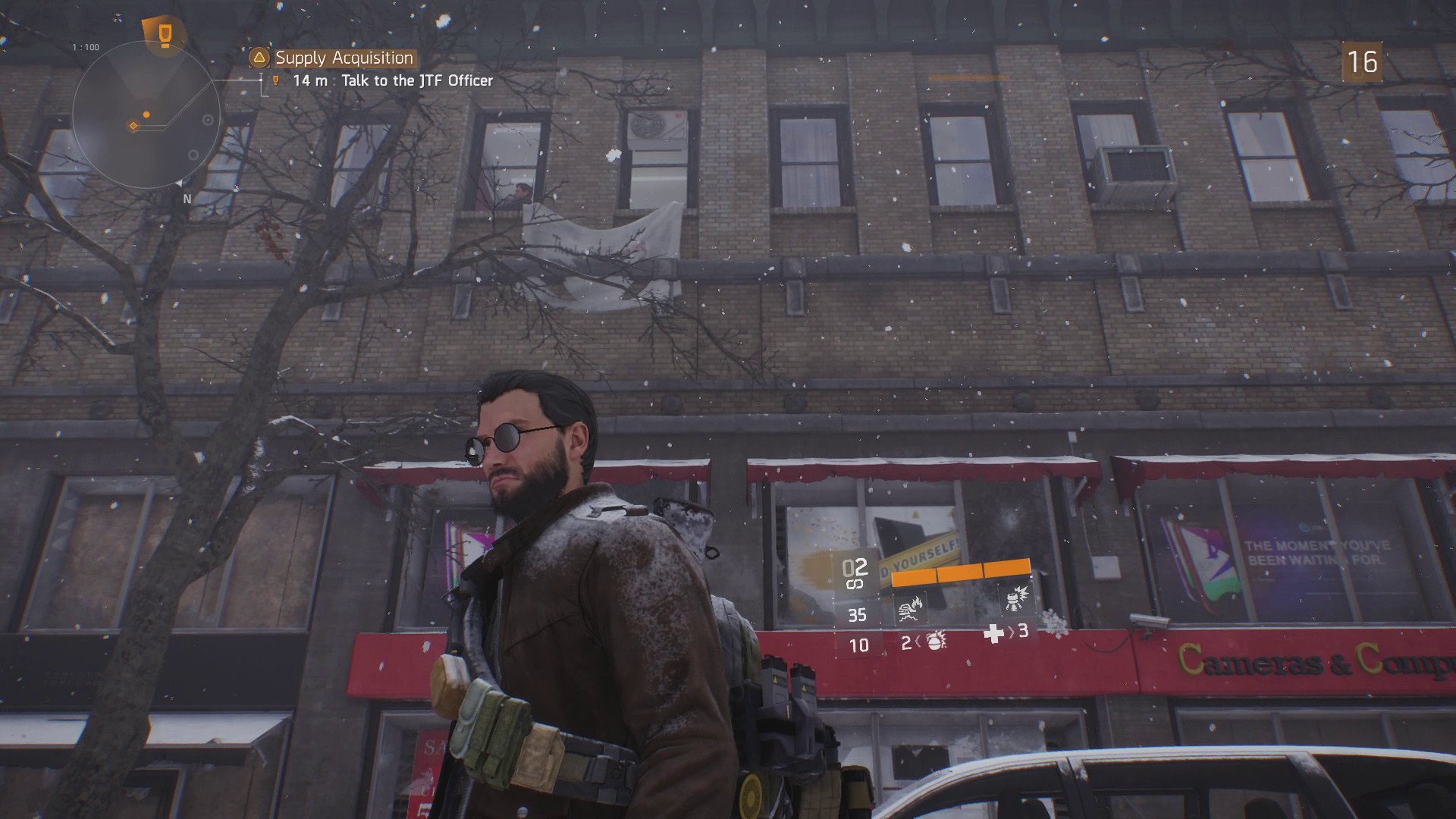
Reaching Level 30 introduces Phoenix Credits, farmed from the high-level areas and daily quests, which can be used to purchase powerful items. Level 30 also unlocks challenge modes for the game's missions — think hard mode, but even harder. The Division also has a season pass that promises three new expansions, in addition to exclusive extra content along the way. Additionally, Ubisoft will soon patch in Incursions, which will form the basis of The Division's end game "raid" content for squad-based play. You can check out a trailer for future content for The Division right here, and the mere fact the trailer is titled "Year One" shows that the studio has extensive plans for this game.
Tom Clancy's The Division is already a massive success story, becoming Ubisoft's fastest-selling game of all time. So far, it seems that Ubisoft has side-stepped some of the mistakes made by similarly connected games and delivered something truly special in the process. Frankly, so far, this is the game that I expected Destiny to be.
Stay tuned for our full review, but I think it'll be a little more of a reflective piece. From what I've seen so far, I'm prepared to recommend The Division right now to anyone who enjoys multiplayer shooters, loot-heavy RPGs like Diablo and Borderlands, and even single player cover-based shooter campaigns like Gears of War or Mass Effect.
It has been a while since I've had this much fun in an online game, I just hope the fun lasts as I march towards the level cap.

Jez Corden is the Executive Editor at Windows Central, focusing primarily on all things Xbox and gaming. Jez is known for breaking exclusive news and analysis as relates to the Microsoft ecosystem while being powered by tea. Follow on Twitter (X) and Threads, and listen to his XB2 Podcast, all about, you guessed it, Xbox!
